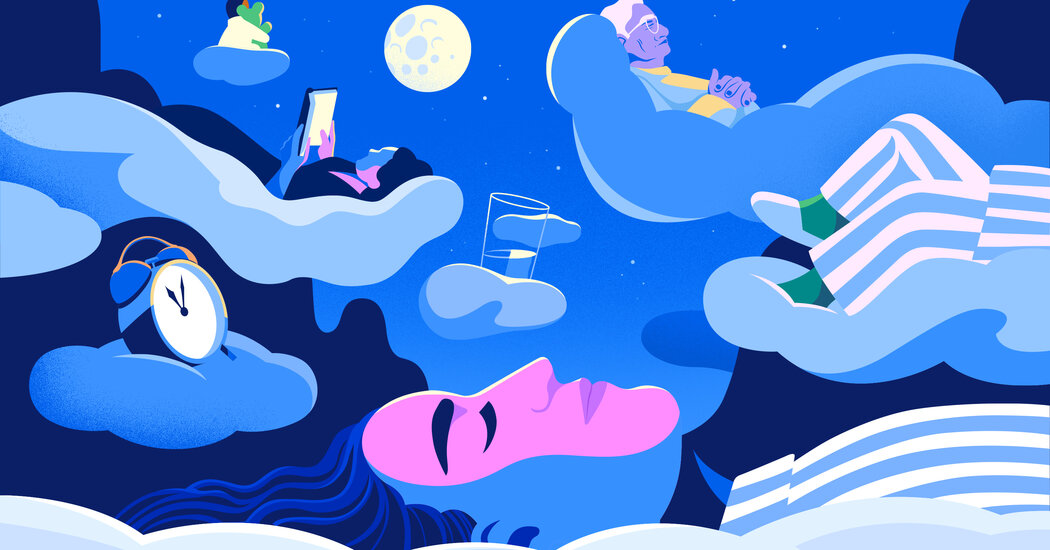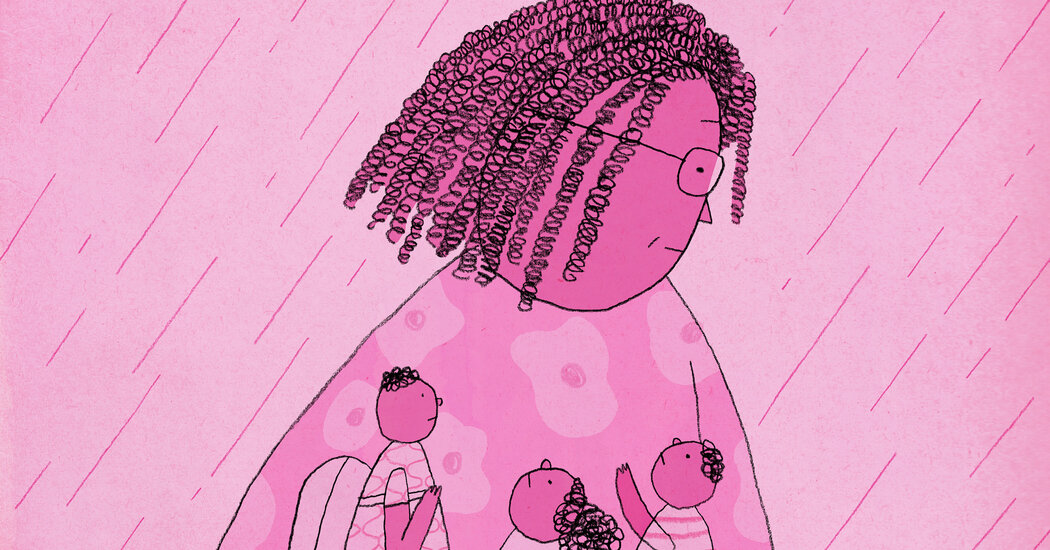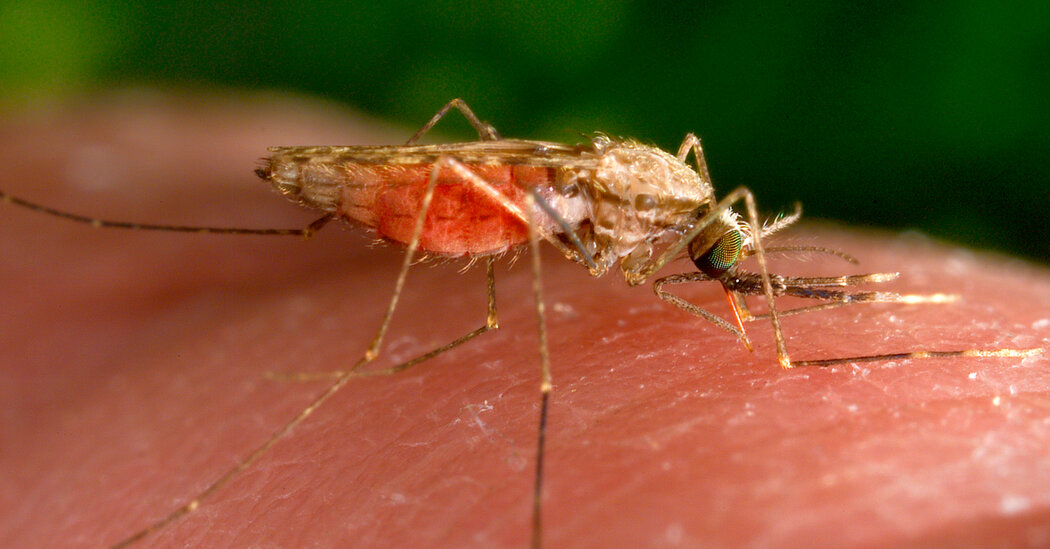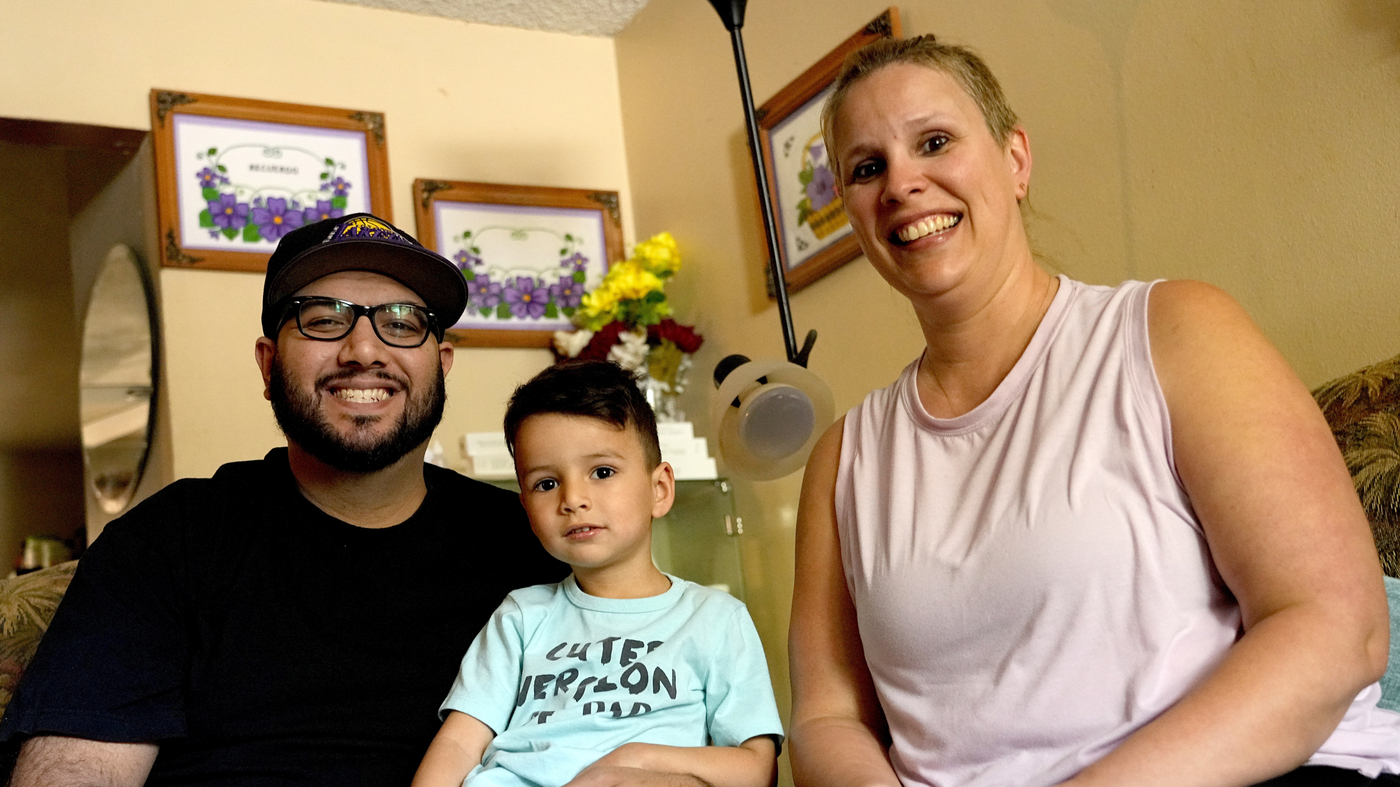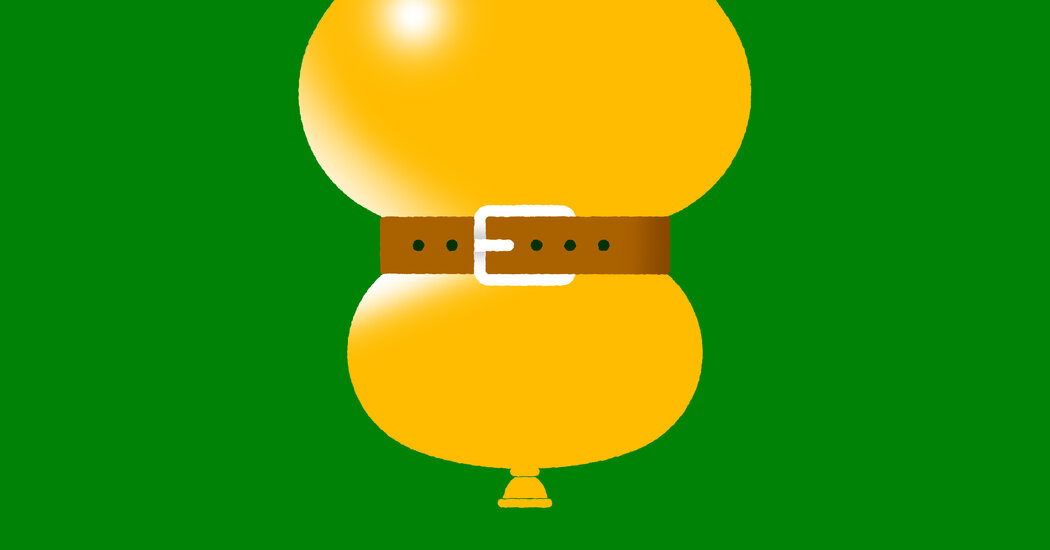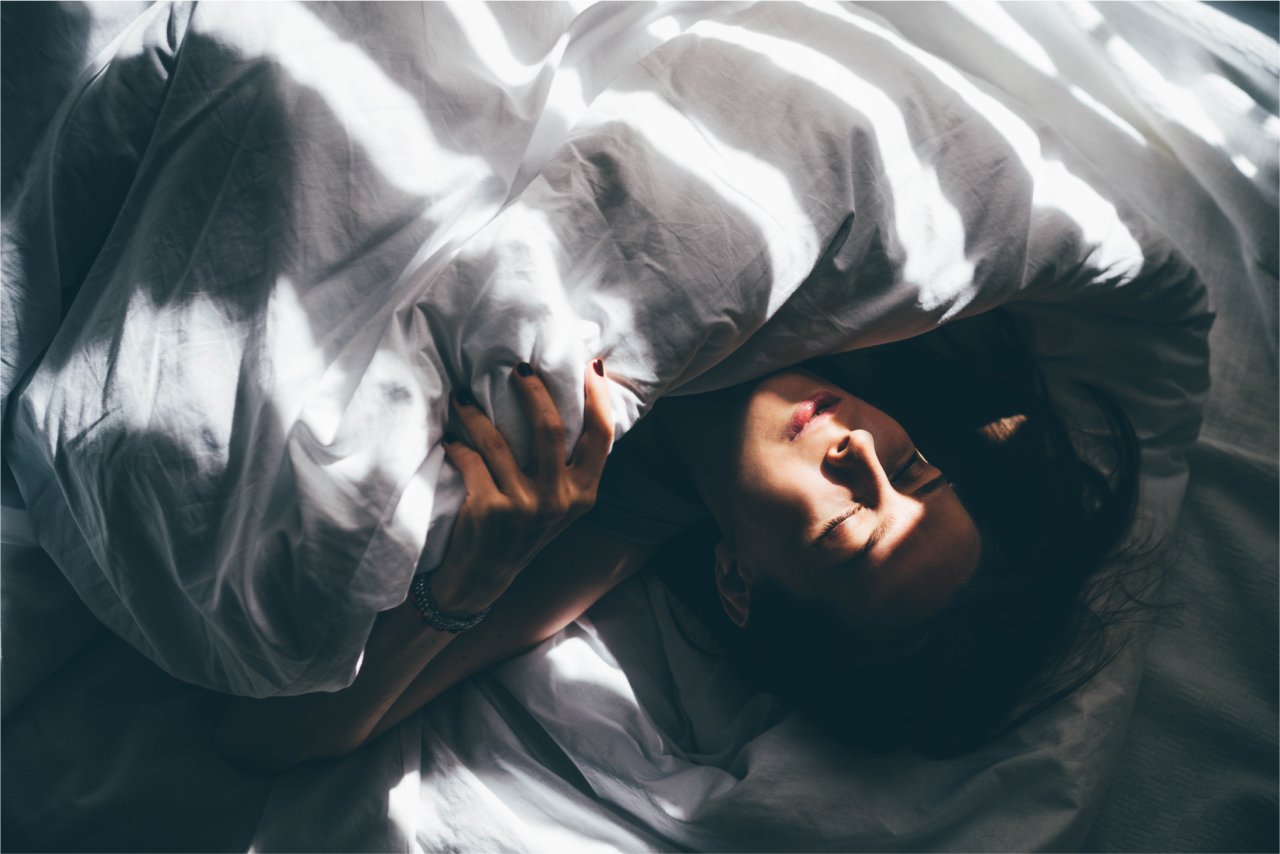[ad_1]
Babies, Toddlers and Preschoolers
Sleep is perhaps most critical during the first years of life, and babies sleep in long stretches, both during the day and at night. Newborns spend 14 to 17 hours sleeping each day; once infants hit the 4-month mark, they tend to sleep a little less, around 12 to 16 hours over a 24-hour period.
Achieving that amount of sleep isn’t always easy — babies are “inherently little agents of chaos,” said Dr. Craig Canapari, a pediatric sleep expert at Yale University. Sleep training, the process of teaching babies how to soothe themselves at night and sleep independently, can start when infants are 3 to 4 months old. While sleep training can be taxing for everyone involved, it can lead to better sleep for the whole household. (Read more about it here.)
As children become toddlers and preschoolers, they need less sleep than babies do, around 10 to 14 hours over a 24-hour period. It’s important for kids this age to have a consistent bedtime and a simple nightly routine (which could include a bedtime story or song), especially as they phase out naps.
Here are some of the most common problems that arise during these years.
Day and night confusion is turning everything upside down.
The problem: It can take up to 12 weeks for newborns to develop the circadian drive that prompts them to sleep during the night, Dr. Canapari said — which means babies can end up crying throughout the night and sleeping through the day.
Try this: Sunlight sends a powerful signal and can help your baby stay awake. While you don’t want to place infants directly in the sun, exposing them to light through a window or sitting with them outside during the day, but in shade, can help, Dr. Canapari said.
Naptime is a struggle.
The problem: It’s normal for newborns to take up to four naps a day, Dr. Canapari said, a number that gradually diminishes as they get older. Around the 1-year mark, babies tend to take two to three naps. That third nap often falls away later, between 6 and 15 months. But at any age, nap time can become a challenge: Some kids just refuse to rest during the day and can be fussy and irritable without a nap.
Try this: Dr. Canapari advised paying attention to your child’s nocturnal sleep. First: Is your child more or less sleeping through the night? If not, turn to the elements of sleep training. If your child is sleeping well at night but won’t nap during the day, make sure the routine leading up to naptime is similar to the bedtime rituals you have in place. If your child continues what Dr. Canapari calls “the nap strike,” you may want to see if your kid can go without the nap, or potentially move it earlier.
Your child keeps waking you up at night.
The problem: After graduating to a real bed, your child may get up during the night and wake you.
Try this: Children ages 3 and up can benefit from what Dr. Canapari calls the “hall pass” system, to incentivize them to stay in their own bed throughout the night. You can make a tangible hall pass with a piece of paper and give it to your child to use if he or she really needs you during the night — your kid can redeem the hall pass for any reason, but it should be something that takes under five minutes, like a hug, a glass of water or an accompanied trip to the bathroom.
If your kid doesn’t use the hall pass at all, in the morning you can grant a reward, like 10 minutes of a favorite show or a pack of stickers.
Your child is scared.
The problem: It’s common for kids to wake up at night and prod parents with questions, Dr. Canapari said. A child might voice anxieties that a robber could break into the home, for example, or a natural disaster could hit, he said.
Try this: It’s important to ease your child’s worries without engaging in a long line of questioning, Dr. Canapari said. Tell your child, “It’s OK,” and say you’ll demonstrate in the morning the ways your house is secure, for instance. If your kid is afraid of the dark, a night light can help, but Dr. Canapari recommends making sure it’s not so bright you could read in the room while it’s on. You can also try out a flashlight treasure hunt during the day: Turn off the lights and hide stuffed animals or other objects across the room to help your kid get used to the dark.
Grade School Years
Elementary- and middle-school-aged children usually function best when they get nine to 12 hours of sleep each night. Adequate rest is a critical component in helping them grow, especially as their brains develop.
Sleep also affects school performance: Kids need rest so that they can better absorb and retain the information they learn during the day.
Setting a consistent sleep and wake time can help parents nudge their children into regular patterns of rest. If your child is struggling to sleep through the night at this age, consider talking to a pediatrician about possible solutions.
These are the sleep issues that tend to arise for kids ages 6 to 12 — and what to do about them.
Your child struggles with insomnia or night terrors.
The problem: Insomnia can strike at any age: Around 20 percent of children have difficulty falling or staying asleep. Kids might also deal with night terrors, in which they kick, thrash or scream — and typically do not remember the experience in the morning. Doctors aren’t entirely sure why children have night terrors, Dr. Roth said, adding that they are far more common in children than in adults.
Try this: If your child is struggling with insomnia, a pediatrician can recommend treatment options like cognitive behavioral therapy. And, as disconcerting as night terrors may be, Dr. Roth said, they’re something to ride out, not solve. She recommends that parents avoid waking children during a night terror, but comfort them as much as you can, she said. Children may feel more confused if you wake them up and may then struggle to fall back asleep.
Screens are sabotaging your child’s sleep.
The problem: Particularly when kids hit double digits, they may have access to devices, such as phones or tablets, which can tempt them to stay up longer.
Try this: Collect a younger child’s electronics before bed, advised Dr. Shannon Sullivan, a pediatric sleep medicine specialist and clinical professor at Stanford Medicine. If your child uses a phone for an alarm to wake up for school, consider getting an old-fashioned alarm clock instead.
Your child’s schedule is hectic.
The problem: Schedules for children in this age group can vary greatly from week to weekend, or from school year to summer. Children often zip between school, extracurricular activities and family or friend visits, which can make it hard for them to have enough time at night to wind down, Dr. Sullivan said.
Try this: Dr. Sullivan suggested a family-wide “buffer zone” of 20 minutes to do something relaxing before bedtime. Parents can read out loud, or kids can read a few pages on their own (ideally not on a tablet, she said), draw in a coloring book or listen to music, helping them wind down before they start getting ready for bed.
Your child is scared.
The problem: It’s common for kids to wake up at night and prod parents with questions, said Dr. Craig Canapari, a pediatric sleep expert at Yale University. A child might voice anxieties that a robber could break into the home, for example, or a natural disaster could hit, Dr. Canapari said.
Try this: It’s important to ease your child’s worries without engaging in a long conversation, Dr. Canapari said. Tell your child, “It’s OK,” and say you’ll demonstrate in the morning the ways your house is secure, for example. If your kid is afraid of the dark, a night light can help, but Dr. Canapari recommends making sure it’s not so bright you could read in the room while it’s on.
Teenage Years
Once you reach adolescence, you need eight to 10 hours of sleep, which helps power the growth spurt that many people experience in their teenage years.
Meanwhile, puberty and hormonal changes shift your internal clock, prompting you to stay up at night and wake up later each morning. Researchers aren’t sure why that shift happens, but they know the consequences of it: Many teenagers are chronically sleep-deprived because they get up so early for school.
Here are some of the issues that can affect sleep and how to handle them.
Your phone is tempting.
The problem: Early school start times and a lot of homework make getting enough sleep tricky. Add in social media and the rest of the internet, and it’s clear why many teenagers miss out on crucial hours of rest.
Teenagers are so tired, Dr. Roth said, “I don’t know how anyone does high school.”
Try this: Experts said that delaying school start times would be the best solution. Until that happens, you can limit your screen time in the hour before going to sleep.
If possible, you should position your phone away from your bed to avoid the temptation to scroll until you shut your eyes.
You’re too stressed to sleep.
The problem: Stress and sleep create a cruel cycle: We carry our worries to bed with us, which in turn makes it hard to get good rest, said Dr. Indira Gurubhagavatula, a sleep specialist at Penn Medicine. Bedtime is often the first time all day when we’re not distracted, and anxiety from the day can come into focus.
Try this: Carve out time throughout the day to tend to your stress, Dr. Gurubhagavatula said. Set a timer for a few minutes and write out a list of your worries. Just jotting down your anxieties can help your brain recognize that you’re working to address them, which means you’re less likely to ruminate at night.
You’re stimulated right up until bedtime.
The problem: Sleep experts say that it’s critical to block out time to wind down before bed, instead of scrolling through your phone seconds before falling asleep. Whether you’re up working or engrossed in a TV show, too much stimulation can sabotage your night.
Try this: Schedule at least half an hour to relax (though it’s easier said than done), ideally without a screen. Find an activity that soothes you. Maybe that’s lounging on the couch with a good podcast, occupying your hands with something like knitting or drawing in a coloring book. If you work out, consider shifting your exercise to the morning, instead of close to bedtime, as exertion right before bedtime can make it harder to fall asleep.
You drink caffeine in the afternoon.
The problem: It can take up to 10 hours for caffeine to leave your bloodstream, so a 2 p.m. cup of coffee can linger in your system as you’re trying to fall asleep, flooding your brain with signals to stay awake.
Try this: Cut yourself off from caffeine at noon. Try taking a brief, brisk walk to stave off the afternoon slump — or, for the more adventurous, stick your head in the freezer for a quick jolt of energy.
You have insomnia with no clear cause.
The problem: Around 18 percent of teenagers experience insomnia, the persistent inability to fall and remain asleep. Insomnia doesn’t always have a clear cause, but it may occur because of a family history of the condition, stress or significant changes to your life or routines.
Try this: If you have symptoms of insomnia for more than a few weeks, it’s worth seeking solutions. Talking to a primary care doctor is a good place to start. The standard treatment for insomnia is cognitive behavioral therapy, which psychologists and sleep specialists can help administer.
Adulthood
In your 20s and 30s, you should aim for between seven and nine hours of sleep each night. But how do you know if your needs are on the higher or lower end of that spectrum? Pay attention to how tired you are throughout the week. Experts suggest spending several days without setting alarms and just waking up when your body naturally wants to, which you can try over a three-day weekend.
Here are some of the sleep issues that come up during these years and ways to tackle them.
Your schedule is scattered.
The problem: Often, people in their 20s and 30s wobble between rising early on weekday mornings and lingering in bed on the weekends — a pattern that disrupts your internal clock. The more you go back and forth between early and late bedtimes, the more likely you are to struggle to fall asleep when you need to.
“By definition, if you’re using an alarm clock to wake up, then you are chronically sleep deprived,” said Dr. Indira Gurubhagavatula, a sleep specialist at Penn Medicine. Healthy sleepers naturally wake up when sufficiently rested, and if you habitually rely on alarms, you’re being roused before your body can signal that it has had enough rest.
You may also be chronically sleep-deprived if you wake up roughly two or more hours later than usual on days off. Sleep experts call this condition “social jetlag.”
Try this: You don’t necessarily need to wean yourself off your alarm clock. But if you’re not getting enough sleep, try adjusting your bedtime so that you’re going to bed and waking up at roughly the same time every day, even on the weekends. For extra incentive, reward yourself for waking up early on a Saturday: Plan a morning walk, brunch or a call with a friend, or watch your favorite TV show while you eat breakfast.
You have insomnia with no clear cause.
The problem: Insomnia, the persistent inability to fall and remain asleep, can strike at any age, but there are proven tools to combat it. The condition doesn’t always have a clear cause, but it may occur because of family history of insomnia, stress or significant changes to your life or routines.
Try this: If you have symptoms of insomnia for more than a few weeks, it’s worth seeking solutions. Talking to a primary care doctor is a good place to start. The standard treatment for insomnia is cognitive behavioral therapy, which psychologists and sleep specialists can help administer.
Drinking disrupts your sleep.
The problem: Alcohol might make you fall asleep quickly, but drinking often leads to fragmented sleep. Having a few drinks can also send you to the bathroom hours after you nod off, making it tougher to sleep through the night.
Some people find that their sleep is particularly affected by alcohol — especially as they get older, Dr. Roth said.
Try this: If you want to pinpoint how alcohol impacts your sleep, Dr. Gurubhagavatula suggests, keep a sleep diary and track whether you consistently feel less rested on the days after you drink.
You’re too stressed to sleep.
The problem:Stress and sleep create a cruel cycle: We carry our worries to bed with us, which in turn makes it hard to get good rest, Dr. Gurubhagavatula said. Bedtime is often the first time all day when we’re not distracted, and anxiety from the day can come into focus.
Try this: Carve out time throughout the day to tend to your stress, Dr. Gurubhagavatula said. Set a timer for a few minutes and write out a list of your worries. Just jotting down your anxieties can help your brain recognize that you’re working to address them, which means you’re less likely to ruminate at night.
You’re stimulated right up until bedtime.
The problem: Sleep experts say that it’s critical to block out time to wind down before bed, instead of scrolling through your phone seconds before falling asleep. Whether you’re up working or engrossed in a TV show, too much stimulation can sabotage your night.
Try this: Schedule at least half an hour to relax (though it’s easier said than done), ideally without a screen. Find an activity that soothes you. Maybe that’s lounging on the couch with a good podcast, occupying your hands with something like knitting or drawing in a coloring book. If you work out, consider shifting your exercise to the morning, instead of close to bedtime, as exertion right before bedtime can make it harder to fall asleep.
You drink caffeine in the afternoon.
The problem: It can take up to 10 hours for caffeine to leave your bloodstream, so a 2 p.m. cup of coffee can linger in your system as you’re trying to fall asleep, flooding your brain with signals to stay awake.
Try this: Cut yourself off from caffeine at noon. Try taking a brief, brisk walk to stave off the afternoon slump — or, for the more adventurous, stick your head in the freezer for a quick jolt of energy.
Work gets in the way.
The problem: Beyond job-related stress, night shifts and jobs with changing schedules can wreak havoc on your sleep cycle, and most people struggle to get quality sleep in the hours that fall outside their natural circadian rhythm, said Dr. Sabra Abbott, a sleep medicine specialist at the Feinberg School of Medicine at Northwestern University. Oscillating between night and day shifts can also make it tricky to get good sleep. And even those with consistent work schedules can find themselves working right up until bedtime and shutting their laptops right before falling asleep.
Try this: Sunlight makes us feel more awake because it plays a key role in shutting down the release of melatonin. If you work the night shift, protect yourself from after-work sun exposure so that you can fall asleep more easily. Even sunglasses can help, said Aric Prather, a psychologist and sleep specialist at the University of California, San Francisco.
If your schedule changes regularly, you can plan ahead by shifting your sleep back about three days before your new start time, inching your bedtime forward or back by an hour or two each night. It’s also important to carve out time between work and heading to bed — ideally a half hour or longer, but even 10 minutes is better than nothing. Opt for a soothing activity (if you can, without screens), such as listening to calming music or reading a few pages, to signal to your brain that you’re winding down for the night.
Early Midlife
As you ease out of early adulthood and into midlife, you’ll still want to aim for seven or more hours of sleep. At this age, bad sleep habits from your 20s and early 30s might start catching up with you: As we age, it’s harder to bounce back from a poor night of rest. Sleep is critical for helping us process our emotions and regulating our moods, so in addition to making you feel physically worn out, poor sleep can make you more irritated and apathetic. A lack of sleep can also make it hard for you to focus.
Here are some of the causes of poor sleep and what to do about them.
You’re too stressed to sleep.
The problem: Stress and sleep create a cruel cycle: We carry our worries to bed with us, which in turn makes it hard to get good rest, said Dr. Indira Gurubhagavatula, a sleep specialist at Penn Medicine. Bedtime is often the first time all day when we’re not distracted, and anxiety from the day can come into focus.
Try this: Carve out time throughout the day to tend to your stress, Dr. Gurubhagavatula said. Set a timer for a few minutes and write out a list of your worries. Just jotting down your anxieties can help your brain recognize that you’re working to address them, which means you’re less likely to ruminate at night.
Drinking disrupts your sleep.
The problem: Alcohol might make you fall asleep quickly, but drinking often leads to fragmented sleep. Having a few drinks can also send you to the bathroom hours after you nod off, making it tougher to sleep through the night.
Some people find that their sleep is particularly affected by alcohol — especially as they get older, Dr. Roth said.
Try this: If you want to pinpoint how alcohol impacts your sleep, Dr. Gurubhagavatula suggested, keep a sleep diary and track whether you consistently feel less rested on the days after you drink.
You’re stimulated right up until bedtime.
The problem: Sleep experts say that it’s critical to block out time to wind down before bed, instead of scrolling through your phone seconds before falling asleep. Whether you’re up working or engrossed in a TV show, too much stimulation can sabotage your night.
Try this: Schedule at least half an hour to relax (though it’s easier said than done), ideally without a screen. Find an activity that soothes you. Maybe that’s lounging on the couch with a good podcast, occupying your hands with something like knitting or drawing in a coloring book. If you work out, consider shifting your exercise to the morning, instead of close to bedtime, as exertion right before bedtime can make it harder to fall asleep.
You drink caffeine in the afternoon
The problem: It can take up to 10 hours for caffeine to leave your bloodstream, so a 2 p.m. cup of coffee can linger in your system as you’re trying to fall asleep, flooding your brain with signals to stay awake.
Try this: Cut yourself off from caffeine at noon. Try taking a brief, brisk walk to stave off the afternoon slump — or, for the more adventurous, stick your head in the freezer for a quick jolt of energy.
Work gets in the way.
The problem: Beyond job-related stress, night shifts and jobs with changing schedules can wreak havoc on your sleep cycle, and most people struggle to get quality sleep in the hours that fall outside their natural circadian rhythm, said Dr. Sabra Abbott, a sleep medicine specialist at the Feinberg School of Medicine at Northwestern University. Oscillating between night and day shifts can also make it tricky to get good sleep. And even those with consistent work schedules can find themselves working right up until bedtime and shutting their laptops right before falling asleep.
Try this: Sunlight makes us feel more awake because it plays a key role in shutting down the release of melatonin. If you work the night shift, protect yourself from after-work sun exposure so that you can fall asleep more easily. Even sunglasses can help, said Aric Prather, a psychologist and sleep specialist at the University of California, San Francisco.
If your schedule changes regularly, you can plan ahead by shifting your sleep back about three days before your new start time, inching your bedtime ahead or behind by an hour or two each night. It’s also important to carve out time between work and heading to bed — ideally a half hour or longer, but even 10 minutes is better than nothing. Opt for a soothing activity (if you can, without screens), such as listening to calming music or reading a few pages, to signal to your brain that you’re winding down.
You have insomnia with no clear cause.
The problem: Insomnia, the persistent inability to fall and remain asleep, can strike at any age, but there are proven tools to combat it. The condition doesn’t always have a clear cause, but it may occur because of a family history of insomnia, stress or significant changes to your life or routines.
Try this: If you have symptoms of insomnia for more than a few weeks, it’s worth seeking solutions. Talking to a primary care doctor is a good place to start. The standard treatment for insomnia is cognitive behavioral therapy, which psychologists and sleep specialists can help administer.
Midlife
Welcome to midlife: the years during which sleep can take a back seat to work and family obligations, said Dr. Sabra Abbott, a sleep medicine specialist at the Feinberg School of Medicine at Northwestern University. It’s a time of life when it may be hard to prioritize healthy habits like getting good sleep.
You should aim for seven or more hours of sleep, and skimping could have big implications — our immune system takes a hit when we’re sleep deprived, and we can get sick more easily when we don’t get enough rest. Plus, the older we get, the harder it is to bounce back from a night of poor sleep, Dr. Roth said.
Some people believe that we can get used to insufficient sleep, but that’s a myth, said Dr. Indira Gurubhagavatula, a sleep specialist at Penn Medicine. The less we sleep, the more our sleep debt builds, which means we just get more tired and require more rest later. “It can only be paid back with sleep,” she said. “There are no substitutes or shortcuts.”
Here are some of the causes of poor sleep in midlife and what to do about them.
Perimenopause begins.
The problem: As women go through menopause and perimenopause, hot flashes can interrupt sleep. Some women will develop depression and anxiety during this time, which can also contribute to poor sleep.
Try this: As simple as it sounds, changing your sleep attire to cooler pajamas and outfitting your bed in more breathable sheets can help women deal with hot flashes, said Aric Prather, a psychologist and sleep specialist at the University of California, San Francisco. Doctors may also prescribe hormone therapy to address hot flashes, a treatment that may ease symptoms and help women sleep through the night. They might also recommend counseling, like cognitive behavioral therapy, or medication to address depression and anxiety.
Sleep apnea develops.
The problem: Middle age is when many people develop sleep apnea, an often undiagnosed disorder that involves snoring, choking and gasping throughout the night; some may wake up with headaches, feeling drained and depleted even if they got eight hours of sleep. In some instances of sleep apnea, the muscles in the head and neck relax during sleep, leading to an obstruction of air through the windpipe; in others, the brain doesn’t deliver the signals necessary to prompt the body to continue breathing during sleep. A few risk factors can predispose people to sleep apnea, including regularly drinking alcohol, obesity and a family history of the condition.
Try this: If you show signs of sleep apnea, it’s important to get help — the condition is treatable but requires medical attention.
You have insomnia with no clear cause.
The problem: Insomnia, the persistent inability to fall and remain asleep, can strike at any age, but there are proven tools to combat it. The condition doesn’t always have a clear cause, but it may occur because of a family history of insomnia, stress or significant changes to your life or routines.
Try this: If you have symptoms of insomnia for more than a few weeks, it’s worth seeking solutions. Talking to a primary care doctor is a good place to start. The standard treatment for insomnia is cognitive behavioral therapy, which psychologists and sleep specialists can help administer.
Drinking disrupts your sleep.
The problem: Alcohol might make you fall asleep quickly, but drinking often leads to fragmented sleep. Having a few drinks can also send you to the bathroom hours after you nod off, making it tougher to sleep through the night.
Some people find that their sleep is particularly affected by alcohol — especially as they get older, Dr. Roth said.
Try this: If you want to pinpoint how alcohol impacts your sleep, Dr. Gurubhagavatula suggests, keep a sleep diary and track whether you consistently feel less rested on the days after you drink.
You’re too stressed to sleep.
The problem: Stress and sleep create a cruel cycle: We carry our worries to bed with us, which in turn makes it hard to get good rest, Dr. Gurubhagavatula said. Bedtime is often the first time all day when we’re not distracted, and anxiety from the day can come into focus.
Try this: Carve out time throughout the day to tend to your stress, Dr. Gurubhagavatula said. Set a timer for a few minutes and write out a list of your worries. Just jotting down your anxieties can help your brain recognize that you’re working to address them, which means you’re less likely to ruminate at night.
You’re stimulated right up until bed.
The problem: Sleep experts say that it’s critical to block out time to wind down before bed, instead of scrolling through your phone seconds before falling asleep. Whether you’re up working or engrossed in a TV show, too much stimulation can sabotage your night.
Try this: Schedule at least half an hour to relax (though it’s easier said than done), ideally without a screen. Find an activity that soothes you. Maybe that’s lounging on the couch with a good podcast or occupying your hands with something like knitting or drawing in a coloring book. If you work out, consider shifting your exercise to the morning, instead of close to bedtime, as exertion right before bedtime can make it harder to fall asleep.
You drink caffeine in the afternoon.
The problem: It can take up to 10 hours for caffeine to leave your bloodstream, so a 2 p.m. cup of coffee can linger in your system as you’re trying to fall asleep, flooding your brain with signals to stay awake.
Try this: Cut yourself off from caffeine at noon. Try taking a brief, brisk walk to stave off the afternoon slump — or, for the more adventurous, stick your head in the freezer for a quick jolt of energy.
Work gets in the way.
The problem: Beyond job-related stress, night shifts and jobs with changing schedules can wreak havoc on your sleep cycle, and most people struggle to get quality sleep in the hours that fall outside their natural circadian rhythm, Dr. Abbott said. Oscillating between night and day shifts can also make it tricky to get good sleep. And even those with consistent work schedules can find themselves working right up until bedtime and shutting their laptops seconds before falling asleep.
Try this: Sunlight makes us feel more awake because it plays a key role in shutting down the release of melatonin. If you work the night shift, protect yourself from after-work sun exposure so that you can fall asleep more easily. Even sunglasses can help, Dr. Prather said.
If your schedule changes regularly, you can plan ahead by shifting your sleep back about three days before your new start time, inching your bedtime ahead or behind by an hour or two each night. It’s also important to carve out time between work and heading to bed — ideally a half hour or longer, but even 10 minutes is better than nothing. Opt for a soothing activity (if you can, without screens), such as listening to calming music or reading a few pages, to signal to your brain that you’re winding down.
You have to use the bathroom more frequently.
The problem: As we get older, many of us wake up more often throughout the night to use the bathroom, a condition known as nocturia. “It’s annoying,” Dr. Roth said, but it doesn’t necessarily have any larger health implications. The disruptions, however, can take a toll on your sleep.
Try this: Consider limiting the amount of water you drink in the hour or so before bedtime. If you find yourself unable to fall back asleep after getting up in the middle of the night, don’t stay in bed. Try going to a couch or different area of the bedroom and opt for a calming activity, such as reading a few pages of a print book or trying a brief meditation, until you’re ready to fall asleep. If you’re getting up so frequently that you can’t get adequate sleep, talk to a doctor.
Late Midlife
As you reach the later stages of midlife, added stresses and anxieties can fuel new sleep issues. Here’s what to know.
Sleep apnea develops.
The problem: Middle age is also when many people develop sleep apnea, an often undiagnosed disorder that involves snoring, choking and gasping throughout the night. Those with sleep apnea may wake up with headaches and feel drained and depleted even if they got enough sleep. In some instances of sleep apnea, the muscles in the head and neck relax during sleep, leading to an obstruction of air through the windpipe; in others, the brain doesn’t deliver the signals necessary to prompt the body to continue breathing during sleep. A few risk factors can predispose people to sleep apnea, including regularly drinking alcohol, obesity and family history.
Try this: If you show signs of sleep apnea, it’s important to seek out help — the condition is treatable but requires medical attention.
Menopause sleep disruptions begin.
The problem: As women go through menopause, which officially begins after a full year without getting a period, hot flashes can continue to wake them up. Some women get hot flashes even after menopause, which might be because of decreased levels of estrogen, and many menopausal women may experience depression or anxiety, which can also contribute to poor sleep.
Try this: Opting for cooler pajamas and outfitting your bed in more breathable sheets can help with hot flashes, said Aric Prather, a psychologist and sleep specialist at the University of California, San Francisco. Doctors may also address hot flashes by prescribing hormone therapy, which can ease symptoms and help women sleep through the night. Counseling, like cognitive behavioral therapy, or medication can help address depression and anxiety.
You have to use the bathroom more frequently.
The problem: As we get older, many of us wake up more often throughout the night to use the bathroom, a condition known as nocturia. “It’s annoying,” Dr. Roth said, but it doesn’t necessarily have any larger health implications. The disruptions, however, can take a toll on your sleep.
Try this: Consider limiting the amount of water you drink in the hour or so before bedtime. If you find yourself unable to fall back asleep after getting up in the middle of the night, don’t stay in bed. Try going to a couch or different area of the bedroom and opt for a calming activity, such as reading or trying a brief meditation, until you’re ready to fall asleep. If you’re getting up so frequently that you can’t get adequate sleep, it’s worth talking to a primary care doctor.
You have insomnia with no clear cause.
The problem: Insomnia, the persistent inability to fall and remain asleep, is a common sleep disorder. Insomnia doesn’t always have a clear cause, but it may occur because of a family history of the condition, stress or significant changes to your life or routines.
Try this: If you have symptoms of insomnia for more than a few weeks, it’s worth seeking solutions. Talking to a primary care doctor is a good place to start. The standard treatment for insomnia is cognitive behavioral therapy, which psychologists and sleep specialists can help administer.
Drinking disrupts your sleep.
The problem: Alcohol might make you fall asleep quickly, but drinking often leads to fragmented sleep. Having a few drinks can also send you to the bathroom hours after you nod off, making it tougher to sleep through the night.
Some people find that their sleep is particularly affected by alcohol — especially as they get older, Dr. Roth said.
Try this: If you want to pinpoint how alcohol impacts your sleep, suggests Dr. Indira Gurubhagavatula, a sleep specialist at Penn Medicine, keep a sleep diary and track whether you consistently feel less rested on the days after you drink.
You’re too stressed to sleep.
The problem: Stress and sleep create a cruel cycle: We carry our worries to bed with us, which in turn makes it hard to get good rest, Dr. Gurubhagavatula said. Bedtime is often the first time all day when we’re not distracted, and anxiety from the day can come into focus.
Try this: Carve out time throughout the day to tend to your stress, Dr. Gurubhagavatula said. Set a timer for a few minutes and write out a list of your worries. Just jotting down your anxieties can help your brain recognize that you’re working to address them, which means you’re less likely to ruminate at night.
You’re stimulated right up until bedtime.
The problem: Sleep experts say that it’s critical to block out time to wind down before bed, instead of scrolling through your phone seconds before falling asleep. Whether you’re up working or engrossed in a TV show, too much stimulation can sabotage your night.
Try this: Schedule at least half an hour to relax, without a screen. Find an activity that soothes you. Maybe that’s lounging on the couch with a good podcast, occupying your hands with something like knitting or drawing in a coloring book. If you work out, consider shifting your exercise to the morning, instead of close to bedtime, as exertion right before bedtime can make it harder to fall asleep.
You drink caffeine in the afternoon.
The problem: It can take up to 10 hours for caffeine to leave your bloodstream, so a 2 p.m. cup of coffee can linger in your system as you’re trying to fall asleep, flooding your brain with signals to stay awake.
Try this: Cut yourself off from caffeine at noon. Try taking a brief, brisk walk to stave off the afternoon slump — or, for the more adventurous, stick your head in the freezer for a quick jolt of energy.
Work gets in the way.
The problem: Beyond job-related stress, night shifts and jobs with changing schedules can wreak havoc on your sleep cycle, and most people struggle to get quality sleep in the hours that fall outside their natural circadian rhythm, said Dr. Sabra Abbott, a sleep medicine specialist at the Feinberg School of Medicine at Northwestern University. Oscillating between night and day shifts can also make it tricky to get good sleep. And even those with consistent work schedules can find themselves working right up until bedtime and shutting their laptops seconds before falling asleep.
Try this: Sunlight makes us feel more awake because it plays a key role in shutting down the release of melatonin. If you work the night shift, avoid sun exposure as much as possible after work, so that you can fall asleep more easily. Even sunglasses can help, Dr. Prather said.
If your schedule changes regularly, you can plan ahead by shifting your sleep back about three days before a new start time, inching your bedtime forward or back by an hour or two each night. It’s also important to carve out time between work and heading to bed — ideally a half hour or longer, but even 10 minutes is better than nothing. Opt for a soothing activity (if you can, without screens), such as listening to calming music or reading a few pages, to signal to your brain that you’re winding down.
Retirement Age
For those who retire — about half of adults 55 and older in the United States — transitioning out of the work force may mean more time to sleep in, but it also can lead to new complications. But even if you’re still working, new sleep issues can arise and longtime ones can persist.
Here are some of them, and suggestions for how to deal.
Retirement takes away structure.
The problem: Many recently retired people struggle with the lack of a routine. Dr. Roth said she has seen patients who developed insomnia after they retired, as they found themselves floundering without a set daytime structure.
Try this: Dr. Roth recommends creating a new schedule and identifying the moments you want to plan your day around (such as a mid-morning walk around the neighborhood or watching the sunrise). And it’s important to stay active, she added. Physical activity can help you fall asleep faster and stay asleep longer — just make sure you don’t exercise too soon before heading to bed. Try these exercises to help keep you moving.
You have insomnia with no clear cause.
The problem: Insomnia, the persistent inability to fall and remain asleep, is common among this age group. Insomnia doesn’t always have a clear cause, but it may occur because of a family history of the condition, stress or significant changes to your life or routines.
Try this: If you have symptoms of insomnia for more than a few weeks, it’s worth seeking solutions. Talking to a primary care doctor is a good place to start. The standard treatment for insomnia is cognitive behavioral therapy, which psychologists and sleep specialists can help administer.
Drinking disrupts your sleep.
The problem: Alcohol might make you fall asleep quickly, but drinking often leads to fragmented sleep. Having a few drinks can also send you to the bathroom hours after you nod off, making it tougher to sleep through the night.
Some people find that their sleep is particularly affected by alcohol — especially as they get older, Dr. Roth said.
Try this: If you want to pinpoint how alcohol impacts your sleep, suggests Dr. Indira Gurubhagavatula, a sleep specialist at Penn Medicine, keep a sleep diary and track whether you consistently feel less rested on the days after you drink.
You’re too stressed to sleep.
The problem: Stress and sleep create a cruel cycle: We carry our worries to bed with us, which in turn makes it hard to get good rest, Dr. Gurubhagavatula said. Bedtime is often the first time all day when we’re not distracted, and anxiety from the day can come into focus.
Try this: Carve out time throughout the day to tend to your stress, Dr. Gurubhagavatula said. Set a timer for a few minutes and write out a list of your worries. Just jotting down your anxieties can help your brain recognize that you’re working to address them, which means you’re less likely to ruminate at night.
You’re stimulated right up until bed.
The problem: Sleep experts say that it’s critical to block out time to wind down before bed, instead of scrolling on your phone before falling asleep. Whether you’re up working or engrossed in a TV show, too much stimulation before you go to sleep can sabotage your night.
Try this: Schedule at least half an hour to relax (though it’s easier said than done), ideally without a screen. Find an activity that soothes you. Maybe that’s lounging on the couch with a good podcast, occupying your hands with something like knitting or drawing in a coloring book. If you work out, consider shifting your exercise to the morning, instead of close to bedtime, as exertion right before bedtime can make it harder to fall asleep.
You drink caffeine in the afternoon.
The problem: It can take up to 10 hours for caffeine to leave your bloodstream, so a 2 p.m. cup of coffee can linger in your system as you’re trying to fall asleep, flooding your brain with signals to stay awake.
Try this: Cut yourself off from caffeine after noon. Try taking a brief, brisk walk to stave off the afternoon slump — or, for the more adventurous, stick your head in the freezer for a quick jolt of energy.
You have to use the bathroom more frequently.
The problem: As we get older, many of us wake up more often throughout the night to use the bathroom, a condition known as nocturia. “It’s annoying,” Dr. Roth said, but it doesn’t necessarily have any larger health implications. The disruptions, however, can take a toll on your sleep.
Try this: Consider limiting the amount of water you drink in the hour or so before bedtime. If you find yourself unable to fall back asleep after getting up in the middle of the night, don’t stay in bed. Try going to a couch or different area of the bedroom and opt for a calming activity, such as reading a few pages of a print book or trying a brief meditation, until you’re ready to fall asleep. If you’re getting up so frequently that you can’t get adequate sleep, talk to a doctor.
Older Adults
The older you get, the earlier you tend to wake up. At this stage of life, you might doze off near the start of the evening and rise around 5 or 6 a.m.
“Oftentimes, I get older adults who come in for treatment for insomnia and they say, ‘I want to sleep like I did in college,’” Dr. Roth said. But adults over 65 should aim for around seven or eight hours — a little less sleep than they needed as teenagers.
You should be cautious when using drugs and supplements for sleep, Dr. Roth stressed — many sleep medications have side effects that can worsen in older people, and they can also increase the risk of falls. Here are some other issues that crop up among older adults.
You go to the bathroom more often.
The problem: Natural biological processes can disrupt sleep, said Aric Prather, a psychologist and sleep specialist at the University of California, San Francisco. A common complaint is overactive bladder, a condition in which people have the urge to urinate more frequently and may get up in the night several times to use the bathroom.
Try this: If you find yourself unable to fall back asleep after getting up in the middle of the night, don’t stay in bed. Try going to a couch or different area of the bedroom and opting for a calming activity, such as reading a few pages of a print book or trying a brief meditation, until you’re ready to fall back asleep. If you’re getting up so frequently that you’re unable to get adequate sleep, consult your doctor.
You have insomnia with no clear cause.
The problem: Insomnia, the persistent inability to fall and remain asleep, is common among this age group. Insomnia doesn’t always have a clear cause, but it may occur because of a family history of the condition, stress or significant changes to your life or routines.
Try this: If you have symptoms of insomnia for more than a few weeks, it’s worth seeking solutions. Talking to a primary care doctor is a good place to start. The standard treatment for insomnia is cognitive behavioral therapy, which psychologists and sleep specialists can help administer.
Drinking disrupts your sleep.
The problem: Alcohol might make you fall asleep quickly, but drinking often leads to fragmented sleep. Having a few drinks can also send you to the bathroom hours after you nod off, making it tougher to sleep through the night.
Some people find that their sleep is particularly affected by alcohol — especially as they get older, Dr. Roth said.
Try this: If you want to pinpoint how alcohol impacts your sleep, suggests Dr. Indira Gurubhagavatula, a sleep specialist at Penn Medicine, keep a sleep diary and track whether you consistently feel less rested on the days after you drink.
You’re too stressed to sleep.
The problem: Stress and sleep create a cruel cycle: We carry our worries to bed with us, which in turn makes it hard to get good rest, Dr. Gurubhagavatula said. Bedtime is often the first time all day when we’re not distracted, and anxiety from the day can come into focus.
Try this: Carve out time throughout the day to tend to your stress, Dr. Gurubhagavatula said. Set a timer for a few minutes and write out a list of your worries. Just jotting down your anxieties can help your brain recognize that you’re working to address them, which means you’re less likely to ruminate at night.
You’re stimulated right up until bed.
The problem: Sleep experts say that it’s critical to block out time to wind down before bed, instead of scrolling through your phone seconds before falling asleep. Whether you’re up working or engrossed in a TV show, too much stimulation before you go to sleep can sabotage your night.
Try this: Schedule at least half an hour to relax (though it’s easier said than done), ideally without a screen. Find an activity that soothes you. Maybe that’s lounging on the couch with a good podcast, occupying your hands with something like knitting or drawing in a coloring book. If you work out, consider shifting your exercise to the morning, instead of close to bedtime, as exertion right before bedtime can make it harder to fall asleep.
You drink caffeine in the afternoon.
The problem: It can take up to 10 hours for caffeine to leave your bloodstream, so a 2 p.m. cup of coffee can linger in your system as you’re trying to fall asleep, flooding your brain with signals to stay awake.
Try this: Cut yourself off from caffeine at noon. Try taking a brief, brisk walk to stave off the afternoon slump — or, for the more adventurous, stick your head in the freezer for a quick jolt of energy.
[ad_2]
Source link










